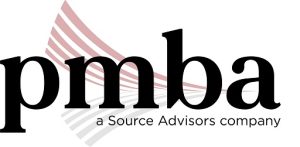Lack of Documentation on Sales & Use Tax Audits
Defending tax audits can be a daunting process for businesses. Defending an audit requires a thorough understanding of the tax laws, regulations, and reporting requirements. Although proper documentation is necessary for all types of tax audits, it is incredibly challenging for Sales & Use Tax audits due to the number of different entities (i.e., customers, vendors, etc.) a company interacts with and the volume of transactions that an audit can incorporate (i.e., all sales and purchases). Further intensifying the need to handle this correctly is the fact that the auditor has the legal authority to see detailed records and supporting documentation for all transactions.
The lack of proper documentation can create significant problems for businesses during sales and use tax audits. Here are some specific issues that can arise:
1. Increased Tax Liability: Sales and Use tax auditors typically use a sampling method to identify transactions for review. If a business cannot provide supporting documentation for these transactions, the auditor may assume that the proper tax amount was not remitted to the State on all transactions during the refund claim period (not just the sampled ones).
2. Penalties and Interest: In addition to increased tax liability, the lack of documentation can also lead to penalties and interest. Auditors may impose penalties for failing to collect and remit sales tax or to maintain proper documentation. Interest charges can also accrue on unpaid taxes, which can add up quickly if the audit covers several years.
3. Time and Resource Demands: The lack of proper documentation can also create a time and resource-intensive audit process. Auditors may require businesses to provide additional information, conduct employee interviews, and unnecessarily review financial statements. This can be time-consuming and costly for businesses, particularly if they do not readily have the proper documentation.
When the proper documentation is not available on hand, various options are available to taxpayers. This includes contacting vendors with liability mitigation letters. A liability mitigation letter is a helpful document to understand if vendors has undergone a voluntary disclosure agreement, collected sales tax upfront, or learn more about their product/service and why it may be potentially exempt. By doing so, we can effectively mitigate any potential liabilities.
Need Help?
If you’re a business undergoing a sales tax audit, PMBA is here to help. Our team of experienced tax professionals is well-versed in the latest sales tax regulations and has a proven track record of helping businesses successfully navigate the audit process. PMBA has assisted clients across various industries to save millions of dollars during sales tax audits.
